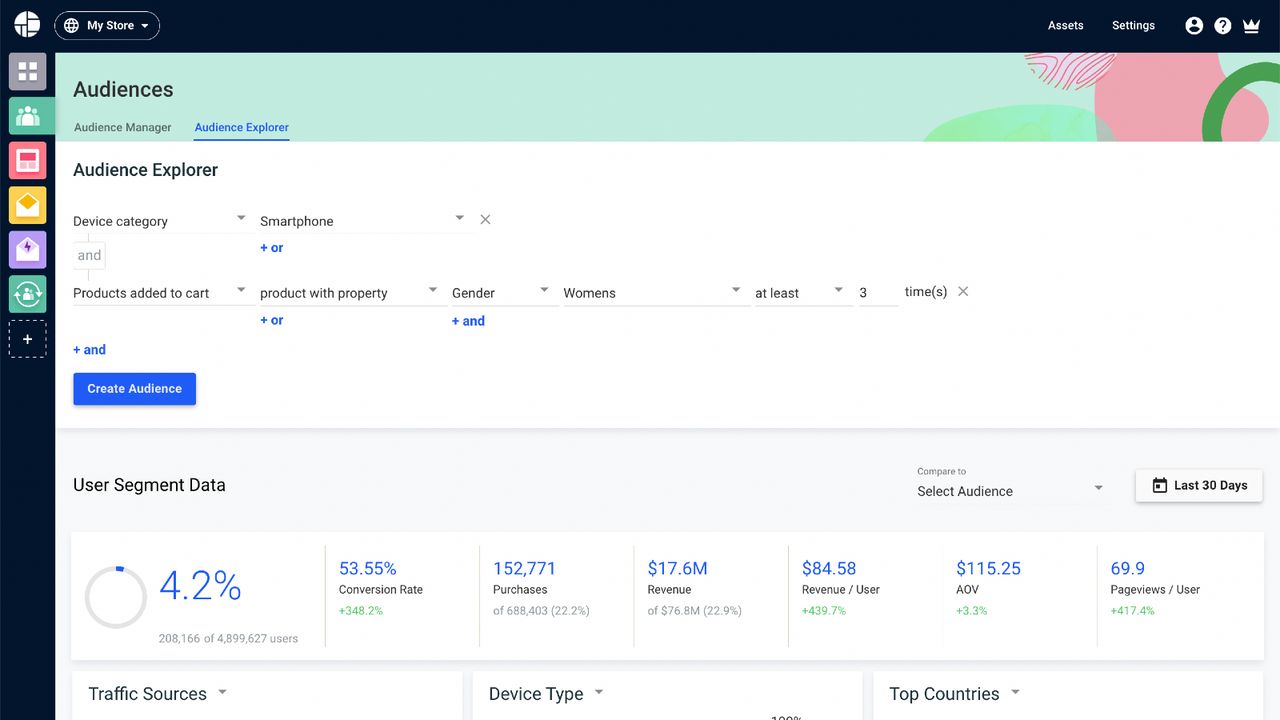
Dynamic Yield by Mastercard: Complete Buyer's Guide
Enterprise-grade AI personalization platform
Dynamic Yield by Mastercard is an enterprise-grade AI personalization platform that transforms how large-scale ecommerce retailers deliver individualized customer experiences across web, mobile, and email channels. Following Mastercard's strategic acquisition in 2021, the platform uniquely combines proprietary machine learning algorithms with anonymized consumer spending data to enable sophisticated behavioral targeting and cross-channel personalization[52][53].
Market Position & Maturity
Market Standing
Dynamic Yield occupies a specialized position within the enterprise AI personalization market, distinguished by its Mastercard acquisition in 2021 and unique access to anonymized consumer spending data that provides competitive advantages unavailable through traditional personalization platforms[52][53].
Company Maturity
The platform's enterprise market focus is evidenced by minimum monthly commitments starting at $13,000 and scaling to $50,000+ for full capabilities, with customer requirements of 500,000+ monthly active users that clearly position Dynamic Yield for large-scale retail operations[49].
Strategic Partnerships
Strategic partnerships center on the Mastercard ecosystem integration, providing access to aggregated consumer spending insights that enable predictive targeting capabilities not available through traditional personalization platforms[53].
Longevity Assessment
Longevity assessment indicates strong backing through Mastercard's strategic investment and continued platform development, including recent enhancements in server-side rendering and predictive accessibility features[56].
Proof of Capabilities
Customer Evidence
Dynamic Yield demonstrates proven capabilities through documented enterprise implementations across multiple industry sectors, with Signet Jewelers representing a validated success case where the platform's targeting capabilities supported lab-created diamond campaign optimization for sustainability-focused customer segments[53].
Market Validation
Market validation includes documented implementations across retail, financial services, and travel sectors, demonstrating platform versatility within enterprise market segments[55].
AI Technology
Dynamic Yield's Experience OS architecture represents a sophisticated AI personalization engine that processes real-time behavioral data through proprietary machine learning algorithms to deliver individualized content experiences across multiple digital touchpoints[55].
Architecture
The platform's technical foundation combines behavioral analysis with predictive targeting capabilities, enabling retailers to optimize customer experiences through data-driven personalization at enterprise scale.
Primary Competitors
Dynamic Yield competes primarily on unique data advantages rather than superior core personalization technology compared to established alternatives like Adobe Target or Optimizely.
Competitive Advantages
Dynamic Yield's primary competitive advantage lies in its unique Mastercard data integration capabilities, providing access to anonymized consumer spending patterns for predictive targeting that traditional personalization platforms cannot match[53].
Market Positioning
Market positioning reveals Dynamic Yield occupies a specialized niche within the enterprise personalization market, competing primarily on unique data advantages rather than superior core personalization technology[52][55].
Key Features

Pros & Cons
Use Cases
Featured In Articles
Comprehensive analysis of Mobile Optimization for Ecommerce for Ecommerce businesses and online retailers. Expert evaluation of features, pricing, and implementation.
How We Researched This Guide
About This Guide: This comprehensive analysis is based on extensive competitive intelligence and real-world implementation data from leading AI vendors. StayModern updates this guide quarterly to reflect market developments and vendor performance changes.
56+ verified sources per analysis including official documentation, customer reviews, analyst reports, and industry publications.
- • Vendor documentation & whitepapers
- • Customer testimonials & case studies
- • Third-party analyst assessments
- • Industry benchmarking reports
Standardized assessment framework across 8 key dimensions for objective comparison.
- • Technology capabilities & architecture
- • Market position & customer evidence
- • Implementation experience & support
- • Pricing value & competitive position
Research is refreshed every 90 days to capture market changes and new vendor capabilities.
- • New product releases & features
- • Market positioning changes
- • Customer feedback integration
- • Competitive landscape shifts
Every claim is source-linked with direct citations to original materials for verification.
- • Clickable citation links
- • Original source attribution
- • Date stamps for currency
- • Quality score validation
Analysis follows systematic research protocols with consistent evaluation frameworks.
- • Standardized assessment criteria
- • Multi-source verification process
- • Consistent evaluation methodology
- • Quality assurance protocols
Buyer-focused analysis with transparent methodology and factual accuracy commitment.
- • Objective comparative analysis
- • Transparent research methodology
- • Factual accuracy commitment
- • Continuous quality improvement
Quality Commitment: If you find any inaccuracies in our analysis on this page, please contact us at research@staymodern.ai. We're committed to maintaining the highest standards of research integrity and will investigate and correct any issues promptly.